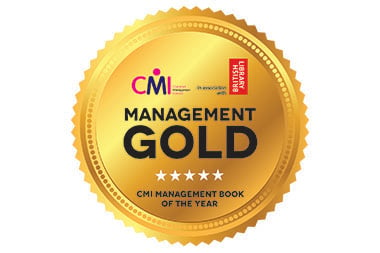The Five-minute Management Idea: Emotional Intelligence
Written by Gill Hasson Friday 17 November 2017
It’s more than 20 years since Daniel Goleman’s seminal book Emotional Intelligence was published.
Most of us now accept his suggestion that our view of human intelligence had been far too narrow. Emotions – and ability to manage them – play a major role in intellectual thought, decision-making and individual success.
Emotional intelligence starts with understanding emotions. We need to understand what they are, in order to manage the role emotions play in how we think and behave.
Why do we have emotions?
- Emotions help keep us safe. Think of a situation when an emotion prompted you to do something automatically, without thinking – a time when you acted instantly out of fear or disgust. Reacting without thinking is a quick-fire response that can protect us from danger.
- Emotions have a social purpose. They help us initiate and maintain connections with others. When we show others empathy, compassion or kindness it can help them feel understood, comforted or supported. Within management, this can boost employee engagement.
- Emotions inspire creativity. Music, films, songs and poems often make us feel reflective. (They may inspire us to create useful outputs too.)
What are emotions and how can we control them?
Emotions are made up of three aspects: thoughts, physical feelings and behaviour.
There’s no one specific order in which the aspects of an emotion occur, but any one aspect can affect the others. What you think can affect how you physically feel. It can also alter how you behave. And, your actions can affect how you feel and what you think.
Next time you experience a strong emotion – for example anger, joy or embarrassment – try to identify each aspect – the physical feelings, the thoughts and behaviour that are involved. Identifying the constituent parts makes it easier to understand how the parts are connected, how they interact and how they can affect people, when we experience an emotion.
How should we view others' emotions?
We often think of emotions as being either positive or negative. The fact is all emotions have a positive intent. Emotions such as fear, anger, sadness, and regret might not feel good but they do have a beneficial purpose.
Anxiety about a meeting a deadline can be a positive emotion. It can motivate focus, and encourage individuals to put all else aside and get on with the task in hand. Anxiety becomes negative if it becomes overwhelming and means you cannot think clearly enough to do the work.
Lessons for managers
When we experience a ‘negative’ emotion, we have a tendency to enforce it with negative responses. Take, for example, regret. The positive intent of regret is to prompt individuals to learn from and avoid making a similar mistake in future. Regret is only negative if we become stuck in negative thoughts, self-blame and inaction. It’s not emotions that are negative, but lack of subsequent action.
The better your understanding of emotions – the purpose, positive intent and different aspects of emotions – the more effective you’ll be at managing the emotions of yourself and others. Understanding and managing emotions is the bedrock of emotional intelligence.
Emotional Intelligence Pocketbook: Little Exercises for an Intuitive Life by Gill Hasson is published by Wiley. It is nominated for Management Book of the Year 2017/2018 in the Commuter’s Read category. Find more information here.
Filling in the Gaps Report
This research highlights the ongoing challenges in closing the gender pay gap.
“As managers, we can help improve the UK economy”
Simon Takel CMgr FCMI on how CMI resources help him navigate change in the further education sector
Pink suits and ice-breakers: what we learned at CMI Communities Live, Birmingham
Experts gathered in the West Midlands to share their ideas for future-proofing leadership
“I haven’t finished developing – I’ve got more to offer”
Gem Fletcher launched her own business podcast and consultancy. She breaks down her commitment to ongoing development…
Blog
This is a space for people to stay up-to-date with all the latest knowledge, opinions and commentary on management and leadership topics from some industry leaders.
Members See More
CMI Members have access to thousands of online learning and CPD resources. Learn more about our membership benefits
Join The Community
CMI offers a variety of flexible membership solutions, tailored to your needs. Find out more and get involved in the CMI community today.
